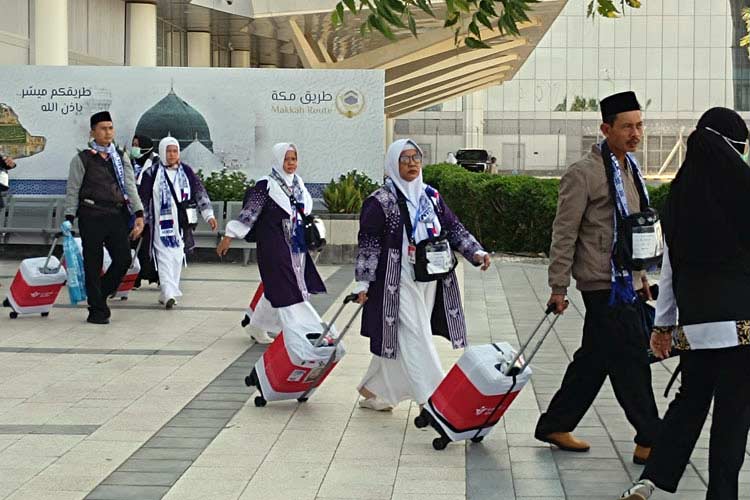Understanding Dementia: Symptoms, Causes, and Early Detection Tips

TIMESINDONESIA, JAKARTA – Dementia is a broad term that refers to a decline in cognitive function severe enough to interfere with daily life. It encompasses various conditions characterized by impairment of at least two brain functions, such as memory loss and judgment. According to recent observations by the Media Center Haji (MCH), an estimated 45,000 elderly pilgrims participating in the Hajj 2024 pilgrimage exhibit signs of dementia.
Dr. Leksmana Arry Chandra, Head of Elderly Services, Disability, and PKP3JH, notes that the elderly Indonesian pilgrims often experience symptoms ranging from forgetting names and familial connections to confusion about their current location. These issues stem from a combination of psychosocial, psychological, and biological factors.
Advertisement
"Dementia can cause significant cognitive disturbances, including disorientation regarding place, time, and people. Initial symptoms usually involve frequent forgetfulness, difficulty learning new things, and concentration problems, especially when moving away from familiar environments," explains Dr. Leksmana.
Causes and Risk Factors
Several factors contribute to the development of dementia, including:
1. Genetic Factors: A family history of dementia increases the risk.
2. Environmental Factors: Long-term exposure to harmful substances and lifestyle choices can impact brain health.
3. Psychological Factors: Mental health conditions, such as depression and anxiety, can exacerbate dementia symptoms.
4. Biological Factors: Aging, cardiovascular health, and overall physical health play a critical role in cognitive function.
Early Symptoms of Dementia
Recognizing the early signs of dementia can lead to timely intervention and management. Key symptoms include:
- Memory Loss: Frequently forgetting recent events or information.
- Difficulty Performing Familiar Tasks: Struggling with routine activities that were once easy.
- Language Problems: Trouble finding the right words or following conversations.
- Disorientation: Confusion about time, place, or familiar faces.
- Poor Judgment: Making unusual decisions or having impaired judgment.
- Changes in Mood and Personality: Experiencing sudden mood swings or personality changes.
Tips for Early Detection
If you suspect that you or a loved one might have dementia, consider these tips for early detection:
1. Monitor Memory and Cognitive Function: Keep track of frequent memory lapses and cognitive changes. Use a diary or smartphone app to note down instances of forgetfulness or confusion.
2. Engage in Mental Exercises: Regularly engage in activities that challenge your brain, such as puzzles, reading, or learning a new skill. These activities can help maintain cognitive function.
3. Seek Medical Advice: Consult a healthcare professional if you notice persistent memory problems or cognitive decline. They can conduct tests to assess cognitive function and identify potential causes.
4. Stay Socially Active: Maintain social interactions to stimulate your brain and reduce the risk of cognitive decline. Join community groups, clubs, or volunteer activities.
5. Healthy Lifestyle Choices: Adopt a healthy lifestyle, including a balanced diet, regular physical exercise, and adequate sleep. Avoid smoking and excessive alcohol consumption.
6. Family History: Be aware of your family medical history. If dementia runs in your family, discuss it with your doctor to understand your risk and take preventive measures.
Dementia is a challenging condition, but early detection and proactive management can significantly improve the quality of life for those affected. By being aware of the symptoms and seeking timely medical advice, individuals and their families can better navigate the complexities of dementia. As demonstrated by the experiences of elderly Hajj 2024 pilgrims, understanding and addressing the factors contributing to cognitive decline is crucial for effective care and support.(*)
**) Ikuti berita terbaru TIMES Indonesia di Google News klik link ini dan jangan lupa di follow.
| Editor | : Khodijah Siti |
| Publisher | : Ahmad Rizki Mubarok |

